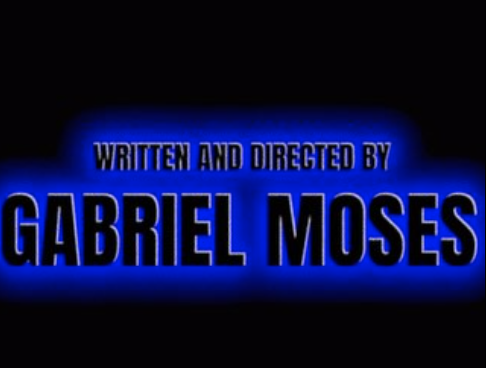
If you’re looking to expand your language skills, British English offers a unique charm and practicality. Learn British English not only to connect with millions of native speakers in the UK but to also gain access to a rich culture, full of history, literature, and media. Whether you’re interested in improving your pronunciation or adopting a British accent, mastering the language can open doors both personally and professionally. Let’s explore how you can make this learning journey fun, engaging, and effective.
Why Learn British English?
British English is distinct from other forms of English, such as American or Australian English. By learning British English, you will develop a unique vocabulary, pronunciation, and spelling that is widely used in global media and academia. If you’ve ever watched British TV, you’ll notice subtle differences in how words are spoken, spelled, and understood. Learning these differences will not only boost your language fluency but also help you better understand the culture of Britain.
Focus on British English Words and Pronunciation
When learning British English, focus on mastering vocabulary specific to the UK. Some British English words differ significantly from their American counterparts. For example, “flat” refers to an apartment, and “biscuit” means a cookie. Having a solid vocabulary base will make it easier to understand native speakers. British pronunciation, often characterized by the Received Pronunciation (RP) accent, is another key aspect to focus on.
The British Accent: Can You Master It?
One of the most appealing aspects of British English is its accent. Whether you’re drawn to the refined tones of RP or the regional accents from across the UK, mastering a British accent takes practice. Listening to native speakers through British TV shows, YouTube channels, or podcasts will help you get familiar with how certain words sound. The more you expose yourself to these accents, the better your own pronunciation and fluency will become.
Use Free Resources to Learn British English
The internet is filled with free resources that make learning British English accessible to everyone. From YouTube videos to online language courses, there are endless opportunities to practice. BBC Learning English is a great place to start, offering short lessons, quizzes, and videos that focus on British vocabulary and pronunciation. By regularly practicing with these tools, you can improve at your own pace and track your progress.
Watch British TV and Movies to Train Your Ears
One of the best ways to improve your British English is to immerse yourself in British culture. Watching British TV shows and films will expose you to different accents, vocabulary, and pronunciation styles. Popular series like Sherlock, The Crown, or Doctor Who can make learning more enjoyable. You’ll also notice how words are used in everyday conversations and improve your listening skills by simply enjoying the content.
Tips for Learning British English Fluently
Consistency is key when learning any language, including British English. To help you stay on track, here are a few tips:
- Practice Daily: Listen to podcasts, watch videos, or chat with native speakers. The more you practice, the more familiar you become with the sounds and vocabulary of British English.
- Join a Language Community: Engage with other learners or native speakers by joining online forums or taking part in English-speaking events. This will build your confidence and allow you to practice in a social setting.
- Use British English in Everyday Conversations: Try using British words and phrases in your daily interactions. Gradually, your brain will adapt, and speaking British English will come more naturally.
Understand British Spellings and Vocabulary
British spellings can differ from American English. Words like “colour” (color in American English) or “centre” (center in American English) may take some getting used to. Additionally, British vocabulary offers some fun differences. For instance, “bother” might mean a trivial problem, and “trainers” refer to what Americans call sneakers. Paying attention to these differences will make your learning experience more authentic and immersive.
Learn British English with Native Speakers
To sound more natural, it’s important to interact with native speakers. You’ll not only improve your pronunciation and vocabulary but also pick up on cultural nuances. Consider language exchange programs or online platforms where you can chat with native British English speakers. This interaction will help refine your accent and build fluency.
British English Fluency: A Skill Worth Mastering
Learning British English is not just about sounding fluent; it’s about connecting with the world. As you grow more comfortable with the language, your confidence will soar. Whether you’re looking to travel to the UK, work with international clients, or simply understand British media better, this skill will serve you well in many aspects of life.
The Road Ahead
Learning any new language, including British English, requires dedication and practice. The good news is, with so many resources available today, it’s easier than ever to improve. Start with small steps—listen to podcasts, watch films, or join a community of learners. Soon, you’ll notice significant progress.
In conclusion, if you’re ready to take your English skills to the next level, learn British English to not only sound more polished but to truly understand the language and culture of Britain. Join the millions who are already on this path and start making progress today. The keyword “learn British English” can unlock a world of possibilities, from enhancing your professional abilities to making new friends across the globe.
Frequently Asked Questions
How can I improve my English spoken skills quickly?
To improve your English spoken skills, practice speaking English daily with native speakers or through language apps.
What’s the best way to learn English with a new accent?
You can learn English with a new accent by focusing on pronunciation, listening to native speakers, and mimicking how they speak.
How do I expand my vocabulary and learn new words in English?
Expanding your vocabulary requires reading, using new words in conversation, and practicing with language tools to learn English effectively.

























































